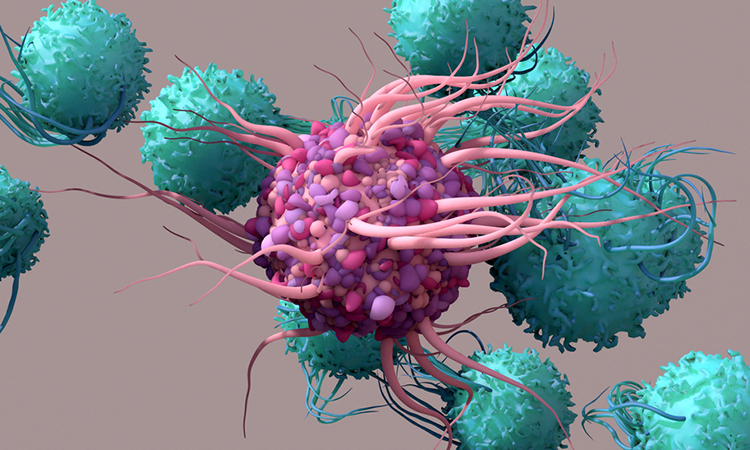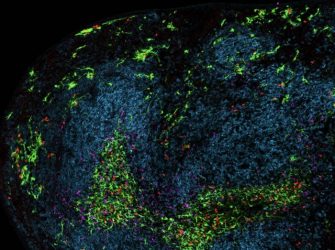Study highlights the essential role of dendritic cells in immunotherapy
Posted: 5 April 2022 | Ria Kakkad (Drug Target Review) | No comments yet
Researchers have discovered how immune system dendritic cells are key to maintaining and regulating response to immunotherapy.


Scientists from Würzburg University, Germany in collaboration with the Peter Doherty Institute for Infection and Immunity (Doherty Institute), Australia have gained a deeper understanding of how killer T cells work with dendritic cells in the processes that drive immune exhaustion and how checkpoint inhibitors work to restore immune function. Dendritic cells, also known as “sentinel”, immune cells, are vital to maintain and regulate the balance of a body’s immune response. The study, which was recently published in Immunity, highlights the essential role of these cells in the treatment of cancer and severe viral infections.


Spleen chronic infection DC and CTL
[Credit: Würzburg Institute of Systems Immunology, Max-Planck Research Group].
Blocking immune exhaustion through drugs, such as checkpoint inhibitors, has proven to be a very powerful therapy for some cancers, but these immunotherapies do not always work and may cause severe side-effects. Previous immune exhaustion research focused on killer T cells, but little was known about the role of their cellular interaction partners.
“Our study used highly sophisticated microscopy to identify where these interactions between killer T cells and dendritic cells take place and how these interactions determine the outcome of a chronic viral infection following checkpoint immunotherapy,” explained Professor Wolfgang Kastenmüller, senior author of the study. “We have shown that dendritic cells activate killer T cells just at the right level as to prevent their overactivation to avoid unwanted immunopathology. This was related to the ability of dendritic cells to maintain unique anatomical niches within lymphoid organs where killer T cells can be retained in a status ready to fight the infection at the correct moment.”
The researchers believe the discovery has far-reaching implications for further research into effective treatments of viral infections, such as HIV and AIDS, hepatitis, possibly COVID-19 and particular types of skin, lung or kidney cancers.
Related topics
Disease Research, Immunology, Immunotherapy, Microscopy, Research & Development, T cells
Related organisations
Peter Doherty Institute for Infection and Immunity (Doherty Institute), Würzburg University
Related people
Wolfgang Kastenmüller







